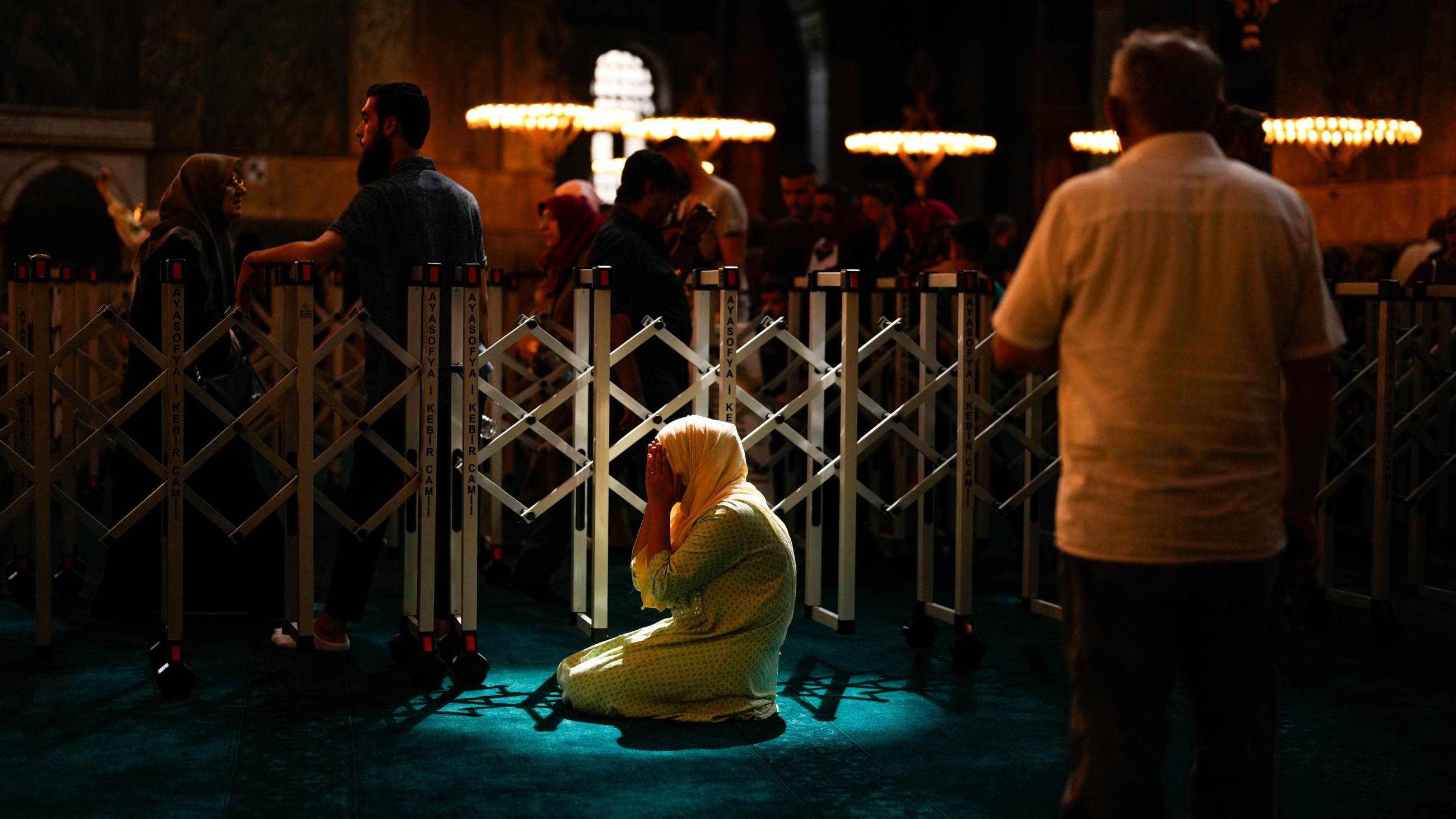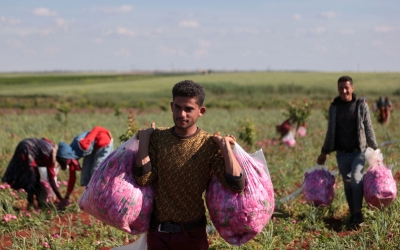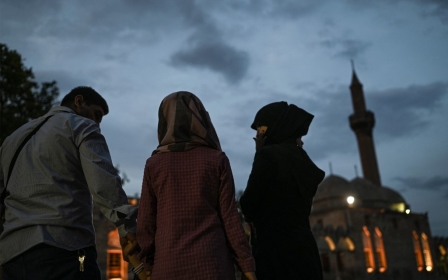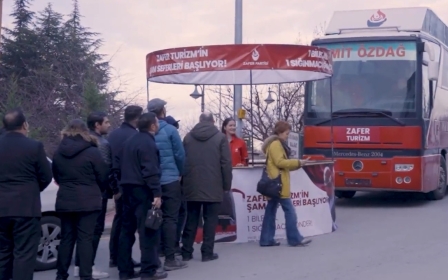Turkey: Fatwa tells Syrians they can pray at home to avoid deportation drive

A Muslim religious writer has cited a fatwa permitting Syrian refugees to avoid attending Friday prayers at mosques in Turkey in order to evade police checks, amid an intensified deportation drive by authorities.
Turkish police have stepped up ID checks and arrests in Istanbul and other major cities in recent weeks, in a campaign targeting refugees and asylum seekers.
Around 1,000 Syrians have been forced to return to their war-torn country in the first two weeks of July, despite most having valid residency permits, according to the Syrian Observatory for Human Rights (SOHR).
The UK-based group called the campaign “inhumane” and urged Ankara to halt the “degrading” and “forced” deportations.
“The Observatory denounces such inhumane treatment of refugees who were forced to flee the horror of war to Turkey and did not come [to the country] by choice,” the group said last week.
New MEE newsletter: Jerusalem Dispatch
Sign up to get the latest insights and analysis on Israel-Palestine, alongside Turkey Unpacked and other MEE newsletters
Four families, including children, were the latest to be deported on Thursday, according to SOHR, which said the rounding up of people is ongoing and dozens of people are arrested every day.
Amid the intensified crackdown, Syrians and refugees from other countries have reportedly been avoiding public areas where they could be stopped and questioned by police.
With some unconfirmed reports circulating that police have arrested people while leaving mosques, Syria-born Palestinian religious researcher Mohammad Khair Mousa, based in Turkey, cited on Friday a ruling telling refugees they can pray at home instead.
Under Islamic teachings, Muslims are obliged to perform Friday prayers in the mosque.
“A fatwa mixed with pain,” Mousa titled his social media post.
“Whoever fears for themselves that they could be arrested and deported, or fear the presence of police patrols and checks outside mosques, then they are relieved from the obligation [to pray in the mosque] and can pray the noon prayer in their house.”
'Tightened measures'
According to the UN, Turkey hosts the largest number of refugees in the world, with at least 3.6 million Syrian refugees living in the country and an additional 320,000 of other nationalities.
The country opened its doors to Syrians in the aftermath of the brutal crackdown by the government of Bashar al-Assad on peaceful pro-democracy protests in 2011, which led to a devastating war and the displacement of more than 12 million people.
However, anti-Syrian sentiment and racism have been on the rise in Turkey in recent months, amid economic hardship.
Many Syrians had hoped the toxic rhetoric used against them by politicians in the run-up to the May elections would cease following the re-election of President Recep Tayyip Erdogan.
However, the recent deportation drive, which comes as Turkish parties gear up towards decisive local elections in March next year, has taken many by surprise.
During the presidential election campaign, Erdogan vowed to “voluntarily” return one million Syrians to their homeland.
The plan was announced despite no agreement being reached with Assad's government that could guarantee their safety.
On 13 July, Erdogan told reporters that “tangible changes on irregular migration” will soon be enacted.
"Our security forces have tightened measures,” he said. "As soon as illegal migrants are apprehended, they are sent to repatriation centres and necessary actions are initiated there. They are sent to their countries, and through this, we eliminate anxiety and fear of our people."
Despite government promises to focus the campaign on “irregular migration”, SOHR said most of the deportation has affected people who have official residency papers and live in the country legally.
The group said women and children were among those deported to areas under the Turkish army control in northwestern Syria, including people sent back on the Eid al-Adha holiday earlier this month.
Middle East Eye delivers independent and unrivalled coverage and analysis of the Middle East, North Africa and beyond. To learn more about republishing this content and the associated fees, please fill out this form. More about MEE can be found here.





